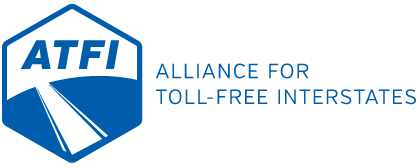By Land Line Magazine
The governors of Kentucky and Ohio held a press conference Wednesday to promote tolls to fund the replacement of the Brent Spence Bridge that carries Interstates 75 and 71 across the Ohio River. As OOIDA and anti-toll groups have already pointed out, tolls would not just pay for bridge construction and maintenance, but also guarantee profits to a private investor.
Kentucky Gov. Steve Beshear and Ohio Gov. John Kasich announced a joint effort to trim the overall costs associated with the proposed $2.6 billion public-private partnership, and said that commuter tolls would be as close to $1 as possible per trip. Truckers would, of course, pay significantly more to cross.
Opposition to tolls might not be so fervent if the project did not call for the complete replacement of toll-free interstate lanes with a tolled facility. OOIDA and the Alliance for Toll-Free Interstates continue to speak out against the conversion of federally funded interstate highways into toll roads.
“The disappointing fact is that two governors of different political parties support a tax increase on drivers who use a stretch of Interstates 71 and 75, which includes the Brent Spence Bridge,” said Julian Walker, spokesman for the Alliance for Toll-Free Interstates.
Walker said that the words “taxes” and “tolls” have the same effect on the end user because it directly affects the costs associated with mobility.
“New tolls mean the price of getting goods to market will increase, leading to higher prices at the register for shoppers. They can also cause traffic diversion, leading to premature wear and tear on secondary roads, and delay rescue workers from responding to emergencies,” Walker said.
Plans for the Brent Spence Bridge have continued to evolve since the Kentucky Transportation Cabinet and Ohio Department of Transportation outlined their joint financial plan that called for a public-private partnership and tolls.
Truckers were concerned after learning that the plan outlined how a private investor would stand to make $1 billion in guaranteed profit by investing in the construction, maintenance and operation of the proposed bridge.
The bridge is currently owned by Kentucky, but state lawmakers have not yet authorized the use of public-private partnerships for the replacement.
Last summer, Ohio lawmakers approved authorization for the bridge to be tolled. Both states must sign off on a plan for the bridge before it can take effect.

